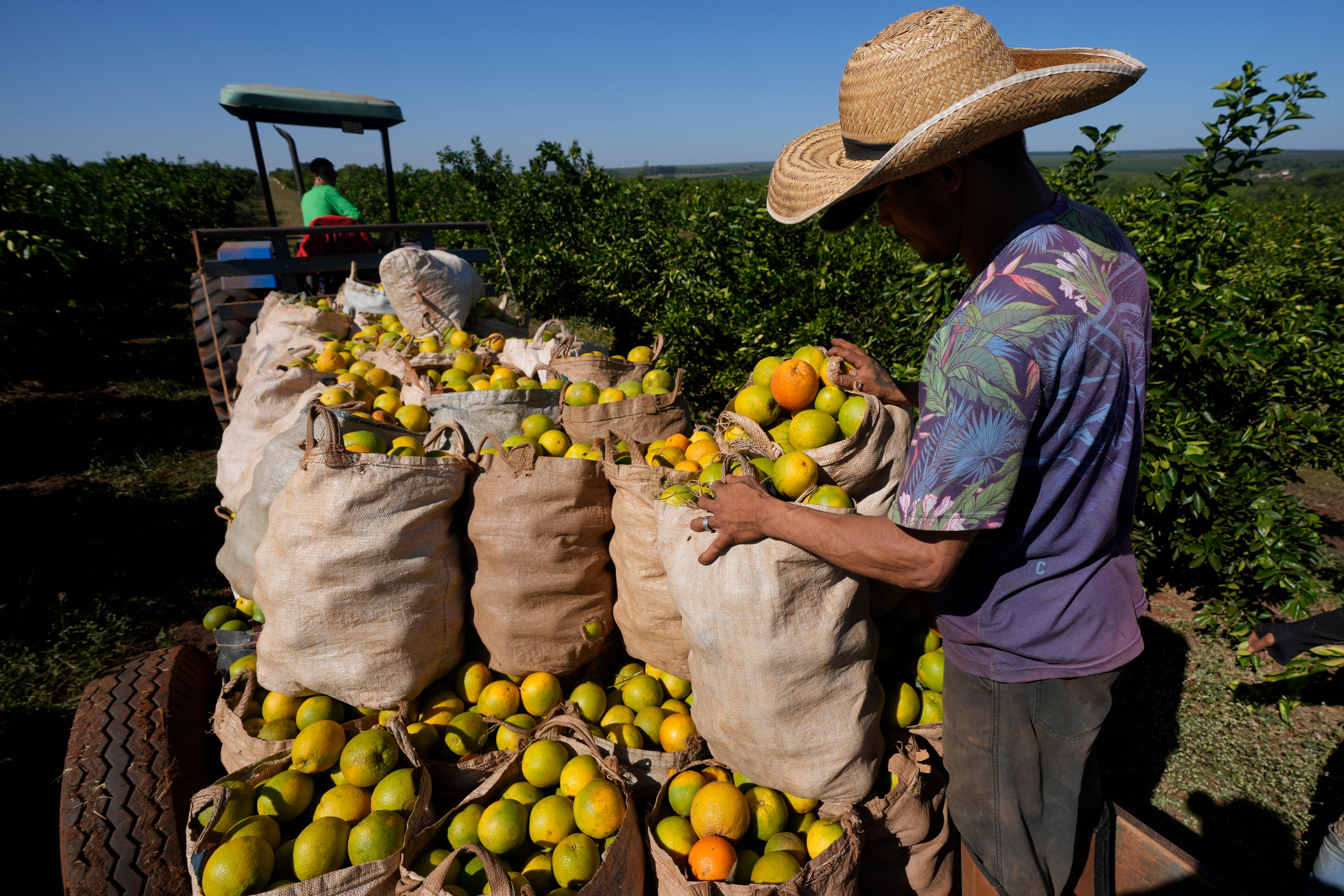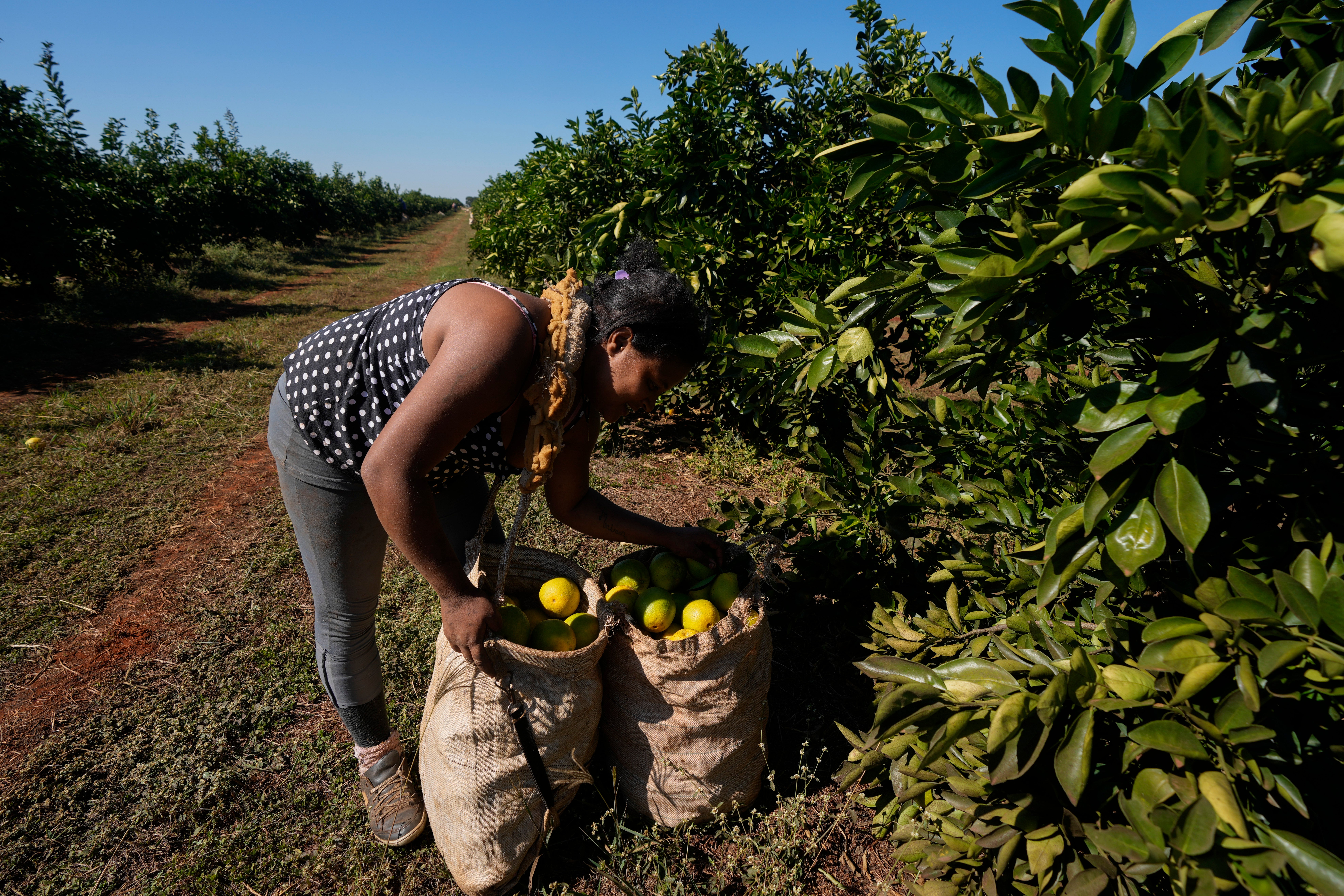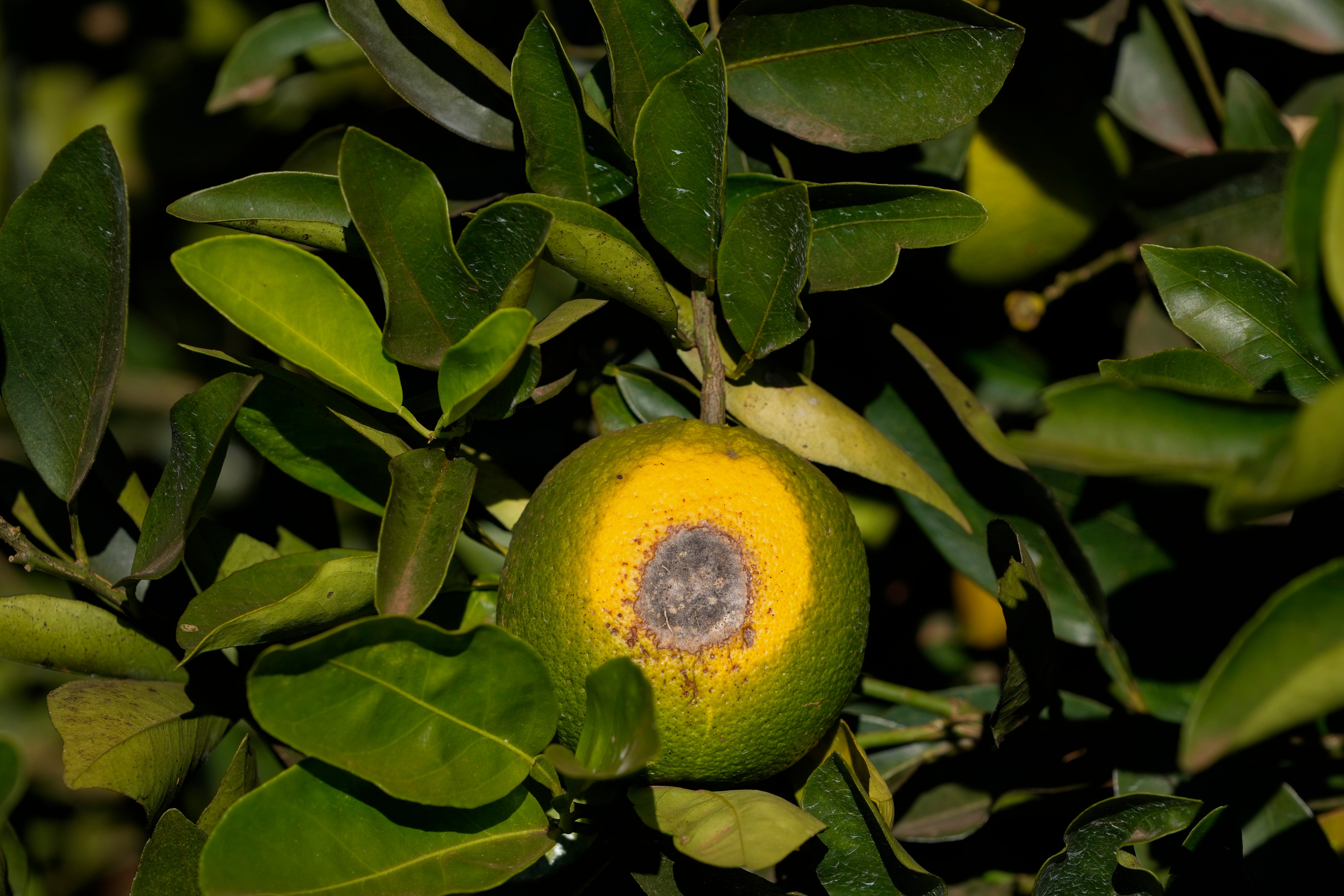Out of juice: Prices of OJ are reaching all-time highs as climate-fueled extreme weather devastates industry
The crisis comes amid a string of extreme weather events in Brazil and Florida

Your support helps us to tell the story
From reproductive rights to climate change to Big Tech, The Independent is on the ground when the story is developing. Whether it's investigating the financials of Elon Musk's pro-Trump PAC or producing our latest documentary, 'The A Word', which shines a light on the American women fighting for reproductive rights, we know how important it is to parse out the facts from the messaging.
At such a critical moment in US history, we need reporters on the ground. Your donation allows us to keep sending journalists to speak to both sides of the story.
The Independent is trusted by Americans across the entire political spectrum. And unlike many other quality news outlets, we choose not to lock Americans out of our reporting and analysis with paywalls. We believe quality journalism should be available to everyone, paid for by those who can afford it.
Your support makes all the difference.Orange juice prices have reached an all-time high amid climate-fueled extreme weather that has devastated the industry.
Frozen concentrated orange juice futures, traded on the Intercontinental Exchange in New York, closed at $4.29 per pound on Monday — nearly double the price registered a year ago.
The high prices are causing inflation-weary shoppers to turn away from the breakfast staple, with orange juice consumption falling by up to 25 percent in major global markets — including the US and the European Union — over the last year, according to Rabobank, a Dutch bank that focuses on food and agriculture.
Jonna Parker, a principal for fresh food client insights at market research company Circana, said the drop in consumption means consumers are increasingly getting their morning fruit intake from energy drinks, smoothies and other beverages besides orange juice.
“The price gets high and people consider other alternatives,” she said.
Orange juice first began rising in price last month after research center Fundecitrus warned that Brazil, the world’s largest producer and exporter of orange juice, was headed for one of its worst orange harvests in more than three decades, with the country producing 232.4 million boxes of oranges in the 2024 to 2025 season — a 24 percent decline compared to the previous cycle.
The crisis comes amid a string of extreme weather events in the country, including heat waves, flooding and drought, which has caused persistent supply issues, as well as a citrus disease known as greening.
The untreatable tree disease is a bacterial infection of citrus plants that results in bitter, stunted fruit that cannot be sold to consumers. Once infected, most trees die within a few years, and there is no cure.

“With no short-term solution in sight and the risk of worsening disease conditions, the situation remains critical,” Kees Cools, president of the International Fruit and Vegetable Juice Association (IFU), told CNBC.
With 40 percent of Brazilian plantations affected by greening disease, the price increases have prompted some orange juice manufacturers and blenders to explore whether alternative fruits, such as mandarins, apples and pears, can be used to dilute the drink, CNBC reported.
Meanwhile, greening has also severely hampered orange production in the “Sunshine State” of Florida — another major orange-growing region — where the IFU says production has collapsed to approximately 17 million boxes, down from 242 million boxes 20 years ago.
Orange production in Florida has also been affected by extreme weather, falling by 62 percent in the 2022-2023 season after Hurricane Ian further battered a crop that was already struggling due to an invasive pest.

“Citrus greening remains a significant threat across all producing areas, and weather volatility will also limit potential growth in the upcoming 2024/2025 harvest,” Andres Padilla, a food and agribusiness research specialist at Rabobank, told CNBC.
“Another effect of citrus greening is that farmers will be incentivized to harvest early, reducing the potential for higher fruit drop rates, which could have a negative effect on fruit quality, and potentially diminish juice yields,” Padilla added.
Sarah Baldwin, CEO of UK manufacturer Purity Soft Drinks, said the challenges facing orange juice supplies were wider than unfavorable weather and disease, adding that the conflicts in Europe and the Middle East are also affecting the industry.
“Over the past year, the industry has experienced devastating orange harvests in Brazil and Florida, alongside the ongoing effects of climate change and supply route disruption,” Baldwin told Just Drinks.
“The knock-on effects of conflict in Europe and now the Middle East are also taking their toll on most commodities.
“The escalating costs of cultivating, processing, and supplying orange juice has taken effect on both from concentrate and not from concentrate lines, causing a shortage which has had an inevitable impact on consumer prices,” she added.
Join our commenting forum
Join thought-provoking conversations, follow other Independent readers and see their replies
Comments